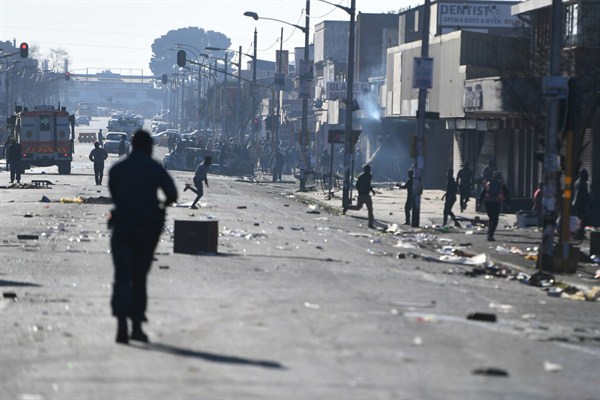When I landed in Johannesburg early last week, the newspapers that greeted me all carried alarming, front-page spreads about a fresh spree of violence against foreigners in South Africa’s biggest cities. There were shocking photos of foreign-owned shops that had been looted, and accounts of how non-South Africans were accosted and beaten. To capture it all, the bold headline of one tabloid simply screamed, “Anarchy.”
News like this, of course, can never be welcome, but the timing of this wave of xenophobic violence seemed particularly awful for a country that is badly struggling both economically and politically. This was all happening just as two major global gatherings were kicking off in South Africa: the World Economic Forum and an inaugural festival of ideas called Africa in the World.
The main targets of these riots, which have erupted with growing frequency in recent years, are migrants from other African countries. Late last week, after the South African government responded to days of violence with relative silence, another newspaper starkly captured what was really happening in the country, with a story about how a young Zimbabwean mother buried her husband who had just been beaten and burned to death. The front-page headline read, “Killed for being African.”

